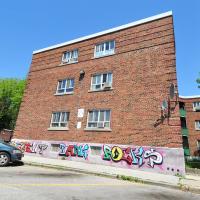What does inequality do to a community? Ironically, there is no relationship whatsoever between key social indicators and gross national product (GNP). Bigger income gaps lead to deteriorations in health (drug abuse, infant mortality, life expectancy, mental illness, obesity), human capital (child well-being, high school drop outs, math and literacy scores, social mobility, teenage births, and social relations (child conflict, homicide, imprisonment, social capital, trust).
There are also higher levels of social capital in those countries with higher equality, a very significant indicator for community vitality. Mental illness is more common in more unequal societies, and paradoxically more unequal societies are more likely to maintain the death penalty, and harsher penalties.
A key indicator of progress, social mobility, is also lower in unequal societies, further widening income gaps and opportunities, a vicious cycle. There are also psycho-social effects of inequality, and for further information, watch this video.
If there is no relationship between GNP and all these indicators, then clearly a good society questions the nature of its growth. A good society improves equality by reducing the income differences between us, improving all those indicators important to our humanity—health, social relations, human capital, and children’s well-being.
- Log in to post comments



CRC Comments